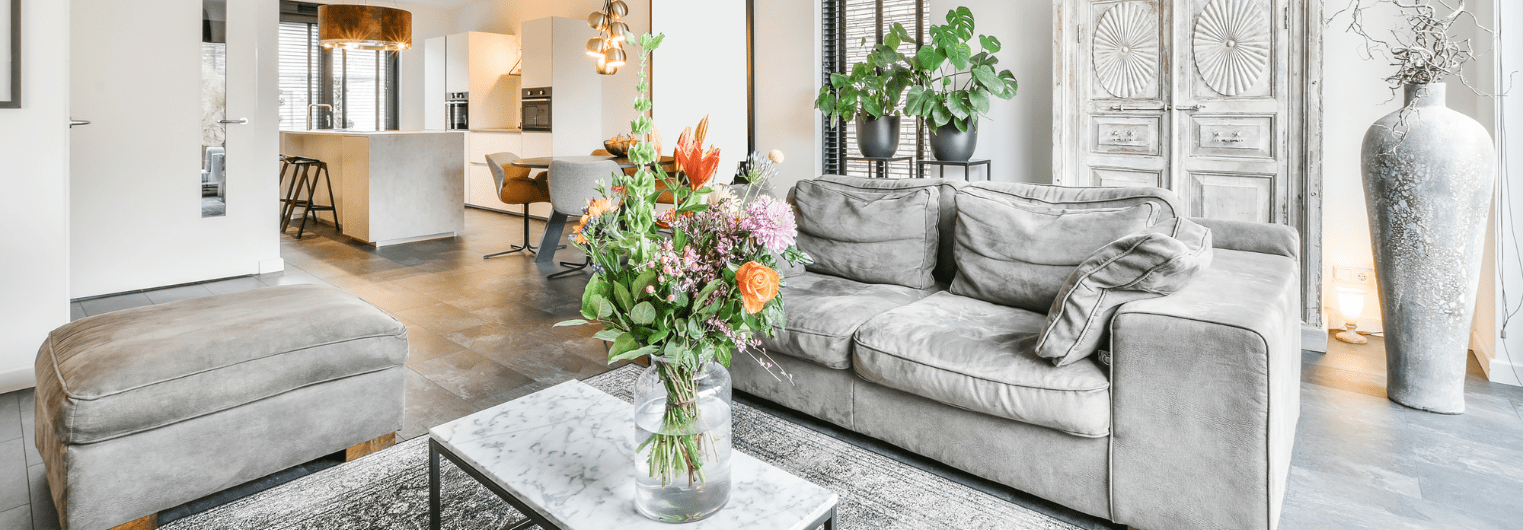
With the stresses of daily life, it’s easy to let dishes, mail, clothes, children’s toys, and other items pile up or get left in places where they don’t belong. If clutter builds up over time and doesn’t get addressed, it can affect your physical and mental health.
Physical Effects of Clutter
A home that’s filled with clutter is hard to clean. If you can’t dust, sweep and vacuum on a regular basis, dirt, dust, pet dander and other allergens can accumulate. That can lead to poor indoor air quality that can trigger allergic reactions. Bits of food that are scattered on floors, tables and countertops can attract insects and rodents, which can be harmful to your health.
Clutter can create safety hazards. People can trip and fall, and things can get knocked off tables or counters and injure people.
If an object is close to a heat source, it can catch fire, and then other objects nearby can also go up in flames. Clutter can make it difficult for people to escape and can create challenges for firefighters trying to put out the blaze.
Clutter can conceal problems. For instance, you might not see a frayed electrical wire if it’s hidden from view. A damaged wire can start a fire, and clutter can provide fuel.
How Clutter Can Affect Your Mental Health
Living in a house that’s cluttered and disorganized can trigger feelings of anxiety and depression and make you feel stressed and overwhelmed by life. You might find it difficult to concentrate, remember important things, and get a good night’s sleep. The clutter in your home can impact your relationships. Family or friends might feel uncomfortable coming to your house because of clutter, or you might avoid inviting people over because you’re embarrassed by the condition of your home. That can lead to feelings of social isolation, anxiety and depression.
Wasting time searching for your keys, phone and other items that you need can cause you to be late for work. That can negatively impact your relationships with your boss and coworkers, reduce your productivity and add to your overall stress level.
What to Do About Clutter
If your house is cluttered, take action to address the problem. Set aside some time to tackle a particular area. Start by sorting items into categories. Sell, donate, or discard things that you no longer need or want, then use containers, baskets, hooks and other tools to create an organizational system that works for you.
Once you have gotten your house organized, keep it that way. Put things where they belong and hold yourself and others accountable. Before you buy new items, ask yourself if you really need them and whether you have enough space for them. Remind yourself that clutter was a problem in the past and be careful not to slip back into old habits.
Physical Effects of Clutter
A home that’s filled with clutter is hard to clean. If you can’t dust, sweep and vacuum on a regular basis, dirt, dust, pet dander and other allergens can accumulate. That can lead to poor indoor air quality that can trigger allergic reactions. Bits of food that are scattered on floors, tables and countertops can attract insects and rodents, which can be harmful to your health.
Clutter can create safety hazards. People can trip and fall, and things can get knocked off tables or counters and injure people.
If an object is close to a heat source, it can catch fire, and then other objects nearby can also go up in flames. Clutter can make it difficult for people to escape and can create challenges for firefighters trying to put out the blaze.
Clutter can conceal problems. For instance, you might not see a frayed electrical wire if it’s hidden from view. A damaged wire can start a fire, and clutter can provide fuel.
How Clutter Can Affect Your Mental Health
Living in a house that’s cluttered and disorganized can trigger feelings of anxiety and depression and make you feel stressed and overwhelmed by life. You might find it difficult to concentrate, remember important things, and get a good night’s sleep. The clutter in your home can impact your relationships. Family or friends might feel uncomfortable coming to your house because of clutter, or you might avoid inviting people over because you’re embarrassed by the condition of your home. That can lead to feelings of social isolation, anxiety and depression.
Wasting time searching for your keys, phone and other items that you need can cause you to be late for work. That can negatively impact your relationships with your boss and coworkers, reduce your productivity and add to your overall stress level.
What to Do About Clutter
If your house is cluttered, take action to address the problem. Set aside some time to tackle a particular area. Start by sorting items into categories. Sell, donate, or discard things that you no longer need or want, then use containers, baskets, hooks and other tools to create an organizational system that works for you.
Once you have gotten your house organized, keep it that way. Put things where they belong and hold yourself and others accountable. Before you buy new items, ask yourself if you really need them and whether you have enough space for them. Remind yourself that clutter was a problem in the past and be careful not to slip back into old habits.




